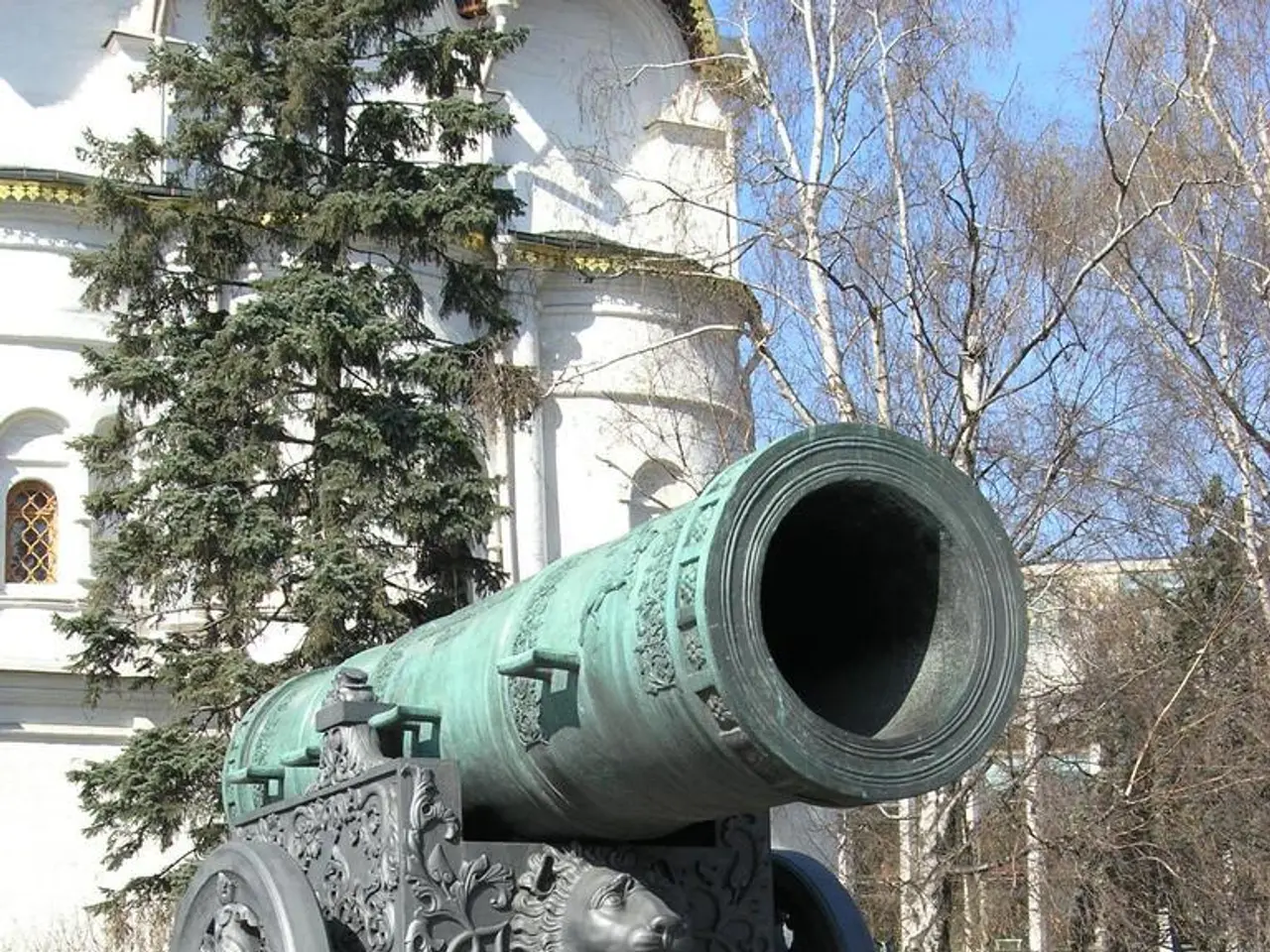Exploring the Legacy of Russian Imperialism in Eurasia: A Look at Tatarstan's Risks and Benefits in Light of Decolonization
In the heart of Russia, one of the ethnic republics, Tatarstan, has become a symbol of potential risks associated with limited decolonisation ambitions. The region, home to the Volga Tatars, the largest Tatar group, has seen a decline in the use of the Tatar language, which was once a mandatory class in schools but ceased to be so in 2017.
The call for decolonisation has been echoing across the post-Soviet region and globally, with growing demands for an end to the Kremlin's imperialistic aspirations. The Free Nations League (FNL), in June 2022, issued a manifesto advocating for Russian decolonisation, seeking to split Russia's territory into 34 independent regions.
The FNL's understanding of decolonisation is intertwined with the concept of de-federation. Assistant Professor Gulnaz Sibgatullina, from the University of Amsterdam, discusses this in an article published in the Italian Institute for International Political Studies (ISPI) dossier, titled "Decolonising the Empire?". Sibgatullina explores the quest for more autonomy in Tatarstan, highlighting its potential risks and opportunities.
However, the path to decolonisation is not without challenges. Tatar activists have faced crackdowns and imprisonment, and the state has prohibited practically any form of Tatar national activism. The interethnic tensions between Tatarstan and neighbouring Bashkortostan could escalate if Tatarstan were to gain independence.
Moreover, Tatarstan is deeply embedded in Russia's economy, trade, and infrastructure, making cutting ties a significant challenge. The ongoing war between Moscow and Ukraine, which has been raging for over a year, further complicates the situation.
Islam, the second most important religion in Russia, with around 10% of the population following it, adds another layer of complexity to the decolonisation debate. The desire for decolonisation must be from the bottom up, taking into account the complexities of Russian society and the intersections of ethnicity and poverty.
Discussions about "decolonising Russia" have arisen among activists from various ethnic groups within the federation, including Tatars, Buryats, Chechens, and others. The FNL, in its manifesto, clearly distances itself from authoritarian and totalitarian ideologies, advocating for a liberal, democratic perspective towards Russia. They view Russia as a dictatorship that denies citizens' rights and is responsible for bloody, senseless wars. The FNL champions liberal democracy as a counter-model.
As the debate on decolonising Russia continues, the case of Tatarstan serves as a reminder of the complexities and challenges involved in pursuing such a goal. The path ahead is fraught with difficulties, but the call for change is growing louder, and the future of Tatarstan and Russia hangs in the balance.
Read also:
- Voting location now active for citizens to cast their ballots.
- Federal clash in California: two legal cases could potentially align, as a notice is published in the Federal Register
- "Local Democrats in the Bronx offering support for Zohran"
- Federalist Society Deserves Gratitude from Trump for Judicial Appointments








